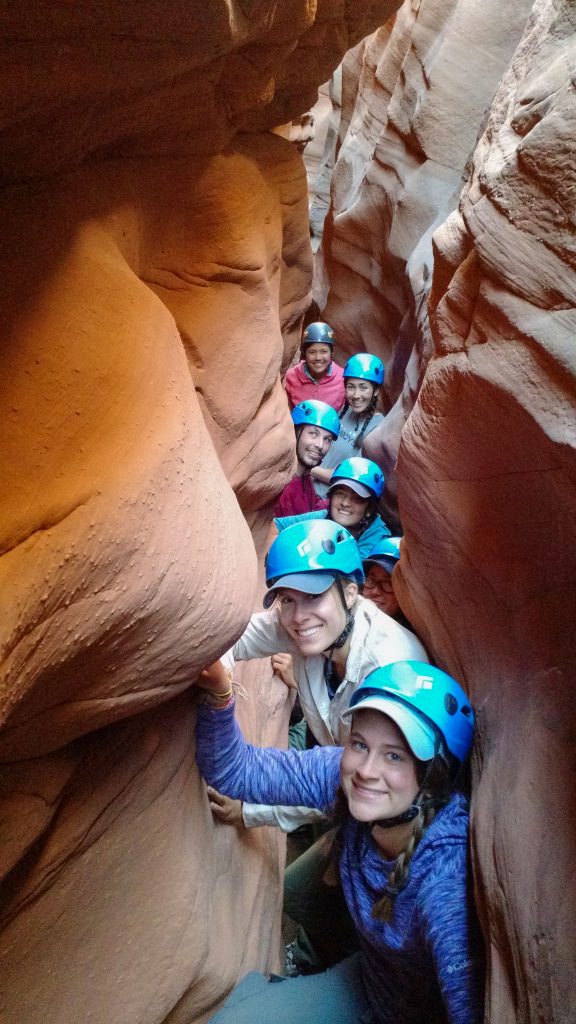You’ve met them. The people who seem to have it all together. The ones floating through their lives, relationships and work with ease. How do they do it? When life is rocky, it’s easy to think, What do they have that I don’t? or When will I have it all together? It’s easy to look at others and compare but even more so, it’s dangerous when you begin to believe, If only I had it together, then I’d be successful. It’s dangerous because you’re assuming somehow you’re missing something—the key or the magic sauce, and you don’t have the tools to be successful.
We all want success. We all want to understand and get things right. We all want to flourish and be the best version of ourselves!
Success doesn’t happen outside of your choices or actions; success isn’t something that just happens to you. Instead of thinking about having it all together as the end goal, I propose something different. Something that will land softer. Use compassion as you begin to imagine the road it takes to get to success. Where does that road curve? Stop? Split? Chances are, the people who seem to have it all together aren’t focused on just the end goal, they’re focused on the small “somethings” that make the road great and probably a little bit daring.

Instead of thinking about having it all together as the end goal, I propose something different. Use compassion as you begin to imagine the road it takes to get to success. Photo by Adam Benway.
If you zoom into one moment in your life, it’s easy to build a story around failure and judge the end result. When I think back to my time as an Outward Bound Instructor, I don’t see someone who had it all together. Let me share a few examples.
- I was demonstrating how to pitch a tent in the rain and was doing it completely wrong. I had to re-explain the whole process while everyone stood there soaking wet just waiting for me to get it right.
- I backed the trailer into a puddle of mud. Everyone had to unload the canoes off the trailer in order for me to drive the trailer out of the mud. Then we all had to reload the canoes.
While these stories are funny, in the moment I wouldn’t have described myself as “having it together.” Let’s take the tent story. It would have been easy for me to tell myself during that moment, I’m ruining this, I can’t do anything right! But instead, after realizing I was pitching the tent wrong, I stopped for a moment, took a deep breath, and told everyone watching, I’m so sorry, the rain is making me anxious while I’m demonstrating this because I know it’s super important to get this right for everyone. Let me back up and re-do this!
I chose to give myself grace and allow others to see that it’s okay to make mistakes. I chose vulnerability over frustration. It’s easy to let the pressure build-up, but allowing yourself to view challenging situations as opportunities to creatively succeed will help guide your next steps. I couldn’t change the fact that everyone felt miserable standing in the rain. But I could change my internal thoughts and allow others to be curious learners.

It’s easy to let the pressure build-up, but allowing yourself to view challenging situations as opportunities to creatively succeed will help guide your next steps.
My second example? Yes, I completely failed by backing the trailer into a giant puddle of mud! But was the lesson that I don’t know how to drive? Not at all! So what happened?
My fellow Instructors and I laughed for a moment. Partly because it was day 22 in the field, and we were slightly deranged by the all sun, but partly because we had literally just loaded the whole trailer five minutes prior to getting it stuck.
Pro-tip: Nothing will make you lose it more quickly than taking everything too seriously.
I relied on my relationships with my co-Instructors that had cultivated during our time together. We quickly came up with the idea of making the situation into a game. Everyone had three minutes to get their canoe off the trailer, and the winners would get to sit wherever they wanted in the van. The trailer was unloaded in a record time of four and a half minutes!
It would have been easy to get angry, lose my cool and place blame on whoever and whatever. That route would have brought the whole group down and we would have lost the chance to squeeze another moment of fun into the course. Having a healthy sense of humor and relying on your relationships will help you soar through sticky situations.
It’s easy to discourage, question and let doubt fill your mind. It’s easy to take single instances as evidence of failure. I believe we do this too often to ourselves and others. In fact, I believe the stories we tell ourselves can be detrimental to our health, to our happiness and to our futures. Striving for perfect will leave us wanting, every time.
In fact, I would argue that when we compare ourselves with the perfect version of an outcome, we lose the ability to learn from it. We lose the ability to gain clarity around our gifts, our talents, our limitations. We lose the ability to practice resilience while allowing the shame of “not good enough” to keep us from moving forward.

Instead of your goal being “to have it all together,” I suggest creating a bigger picture of who you want to be.
The Bigger Picture
Instead of your goal being “to have it all together,” I suggest creating a bigger picture of who you want to be. Imagine how you want to influence others and how you want to feel each day. And your bigger picture isn’t going to happen overnight.
Do you want to know a secret? In those stories I shared, none of my reactions came without prior practice, without a commitment to a bigger picture, without a dedication to believing in my self-worth. During my time at Outward Bound, I discovered so many reasons to accept failure. Yet within those same experiences, I found even greater opportunities to connect and cultivate habits to benefit myself and those around me. If the goal of “having it all together” can change into seeing opportunities to practice connection and confidence, we can begin to develop habits that are powerful, that build relationships and lead to success. These habits are attainable and available to each one of us.
All throughout life, we encounter dozens of setbacks and negative situations that come into our path. Yet, those challenges don’t mean we are less successful! In fact, if we are brave enough to acknowledge the challenges before us, we can instead see them as an accelerated way to learn and improve. Even when we don’t have it together the first time.
About the Author
Hanna McCarthy is a former Outward Bound Instructor and now lives and works in Philly with her husband, Nick, and two dogs, Jelly and Waffle. She finds time each year to surf in new places and enjoys spending time with friends and family. Hanna now splits her career between corporate and teaching yoga, finding balance in her life.
OTHER POSTS YOU MAY LIKE
Read More
Read More
Read More




